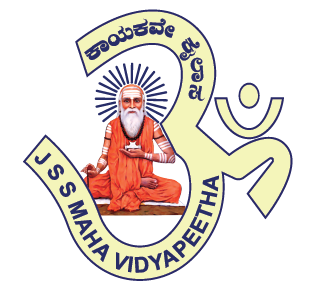JSS Mahavidyapeetha – Towards a better world

The origin of JSS Mahavidyapeetha (JSSMVP), a formidable educational movement, can be traced to the establishment of a small hostel in 1928 to cater to the accommodation needs of students pursuing higher studies in Mysore. His Holiness Jagadguru Dr. Sri Shivarathri Rajendra Mahaswamiji established the Jagadguru Sri Shivarathreeshwara Mahavidyapeetha (JSSMVP) in 1954 and it was registered under the Societies’ Registration Act 1960.
Focusing on a purpose as expansive and yet as specific as improving quality of life through Human Development, the JSS Mahavidyapeetha has grown from strength to strength. A long and healthy life, Education for all and a decent standard of living, the indicators of Human development, have been the underlying philosophy of Jagadguru Sri Veerasimhasana Mahasamsthana Math, Suttur Srikshethra, for centuries. This is also the philosophy for which the Mahaidyapeetha today stands for.
Under the untiring efforts of Jagadguru Dr. Sri Shivarathri Rajendra Mahaswamiji, the Mahavidyapeetha has witnessed enormous growth in the field of education and today has over 300 institutions under its fold, from kindergartens to postgraduate centres and postdoctoral research catering to the educational needs of more than 1,00,000 students.
The Mahavidyapeetha continues to play an important role in expanding the scope of its activities to several branches of knowledge, welfare and culture. Its educational efforts span crèches for toddlers of working rural women, schools to impart primary and secondary education in both Kannada and English medium, Colleges, Polytechnics, Technical, Medicine, etc. For realizing its mission, it has equipped itself with an extensive infrastructure and an army of dedicated and highly qualified human resource. These institutions, located in strategic areas, serve a broad spectrum of society, from virtually remote tribal villages to metropolitan cities such as Bengaluru, Noida, New Delhi, Ooty, and Coimbatore, besides their presence in United States, Mauritius and Dubai.
Apart from formal education, the initiatives stretch to integrated rural development through training and empowering of rural folk, reaching out healthcare to people through modern and traditional Indian systems of medicine, patronizing literary activities, visual arts, performing arts, restoration of temples and historical monuments.


